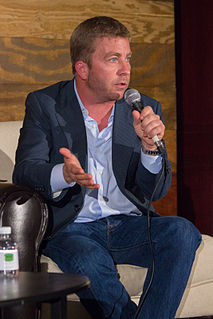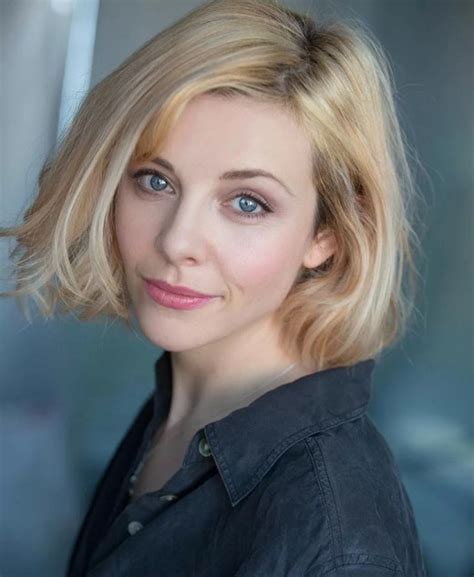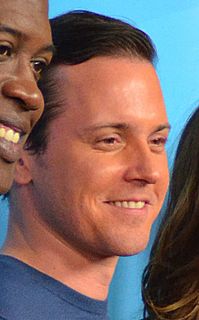A Quote by Peter Billingsley
I think if you turn down the volume on the good comedy, you should not even know if it's a comedy or not. It should look like a drama.
Related Quotes
Comedy scares me a lot. I feel like it's way harder than drama. I think my safety net is definitely drama and I would love to kind of be able to be able to push into the comedy world and do something kind of like a Christopher Guest kind of style show. That, to me, is my kind of comedy. Like, Ricky Gervais comedy. That's my kind of thing.
Comedy scares me a lot. I feel like it's way harder than drama. I think my safety net is definitely drama, and I would love to kind of be able to be able to push into the comedy world and do something kind of like a Christopher Guest kind of style show. That, to me, is my kind of comedy. Like, Ricky Gervais comedy. That's my kind of thing.
Because I was familiar with Taika's Watiti work and there's a very subversive, funny streak amongst all of them. I don't think he turned [Hunt for the Wilderpeople] into a sort of drama, there's too much dark material underneath it for it to be a comedy; it wasn't designed to be a comedy. I think it's a comedy... I think it's a drama that's funny; which is different.
As a writer, I haven't delved into dramatic writing. As an actor, I could always, even more so than comedy, do drama. When you do your comedy and your drama, your acting style doesn't change. If it's a comedy, the situations and the characters might be a little funnier, but you're just trying to be honest.
I like doing comedy, I like doing drama. Naturally I like to do, I like doing dramas, I like conflict, and when I do a comedy, you know, I've found that, like, romantic comedy is the trickiest one, because often it's neither: it's not romantic and it's not funny. So, like, I like a comedy that's biting. It's biting humor or really quirky humor.
I think that there's a fine line between comedy and drama. I think that ultimately, the less winking that's going on when you're doing comedy - and this is just my own thing, and maybe it's why I've never been hired in comedy except by Bill Lawrence - but I think that the less winking you do with comedy, the better off you are.
I think, in general, when you're doing comedy, you're having a good time regardless of the comedy table tennis that you're playing. I think you want that, too: you're rooting for two characters to be together, and you should feel that even when they're angry at each other, they're still in synch with each other.


































